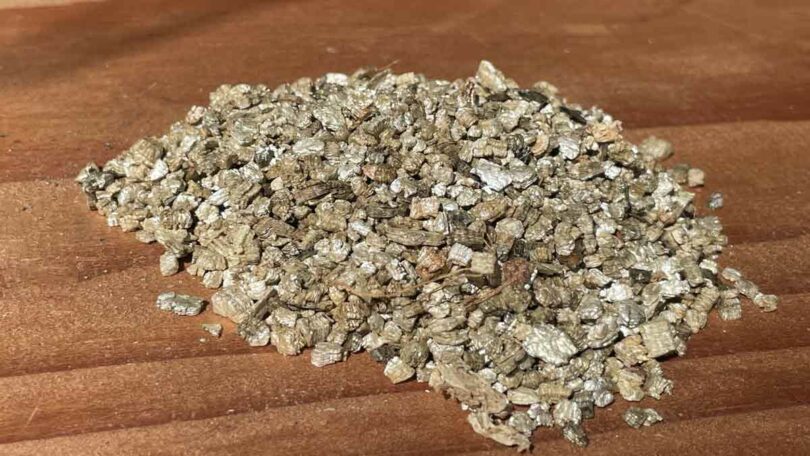
Vermiculite is used widely in the horticultural industry for potting mixes, soil, seed raising and hanging baskets.
It is light weight, water absorbent material basically used in gardening as a soil amendment.
As a soil amendment it has a number of desirable properties:
- It increases soil aeration or porosity.
- It also improves moisture retention.
- Because of its very nature it also allows good release of nutrients to feed roots, cuttings and seeds.
- All of these improve plant health while improving growth rates.
What is Vermiculite used for in Gardening?
It is used as an additive to potting mixes and growing mediums for its capacity to hold large amounts of moisture while maintaining good aeration properties.
Uses include both seed raising and potting mix. It is often used in hanging basket mixes where its light weight and water holding characteristics are valued.
Sterility:
Vermiculite is sterile, which reduces the risk of disease and pests in gardening applications.
How To use Vermiculite in Seed Raising
As this is a sterile material, it is excellent for promoting germination of seeds, especially difficult to germinate types.
Especially useful for germinating very fine seeds, it is sprinkled over the top of the seeds in a thin layer. It retains moisture and helps regulate temperature.
It is usually mixed with peat moss and other materials.
For seed raising a standard mix is : 1 part vermiculite, 2 parts coir 1/2 part aged cow manure. Although other ‘soft fertiliser’ mixes can be used instead of the cow manure
Vermiculite used in soil-less growing mediums
Where a soil-less growing medium is required try mixture of :
- 4 parts peat moss
- 1 part vermiculite
- 1 part perlite
You can use more peat moss if required.
Vermiculite in Hydroponics
Widely used in hydroponics for its water absorbing qualitiethis, lightweight and ability to release minerals and nutrients to plants.
What is the difference between Vermiculite and Perlite ?
We are often asked what the difference is between perlite and vermiculite, they look similar and both retain moisture and both provide some aeration for the roots of plants, however they are indeed different.
- Perlite is a porous material made from volcanic glass (silicon rock), it is heated and expands to create the small balls of material.
- Vermiculite is an alumno silicate, it is also heated and expands.
Both will aerate soil however they are different.
- Vermiculate retains more water than Perlite and will retain minerals and nutrients as well, it actually acts a little like a sponge.
- Perlite will also retain moisture, it does this on the surface, but not as much as Vermiculate, but is better for drainage
So they are similar but different. Vermiculate is great for plants that need lots of water, Perlite is better for this that require some water but good drainage and aeration.
So for water hungry plants, use Vermiculite, for most use Perlite.
